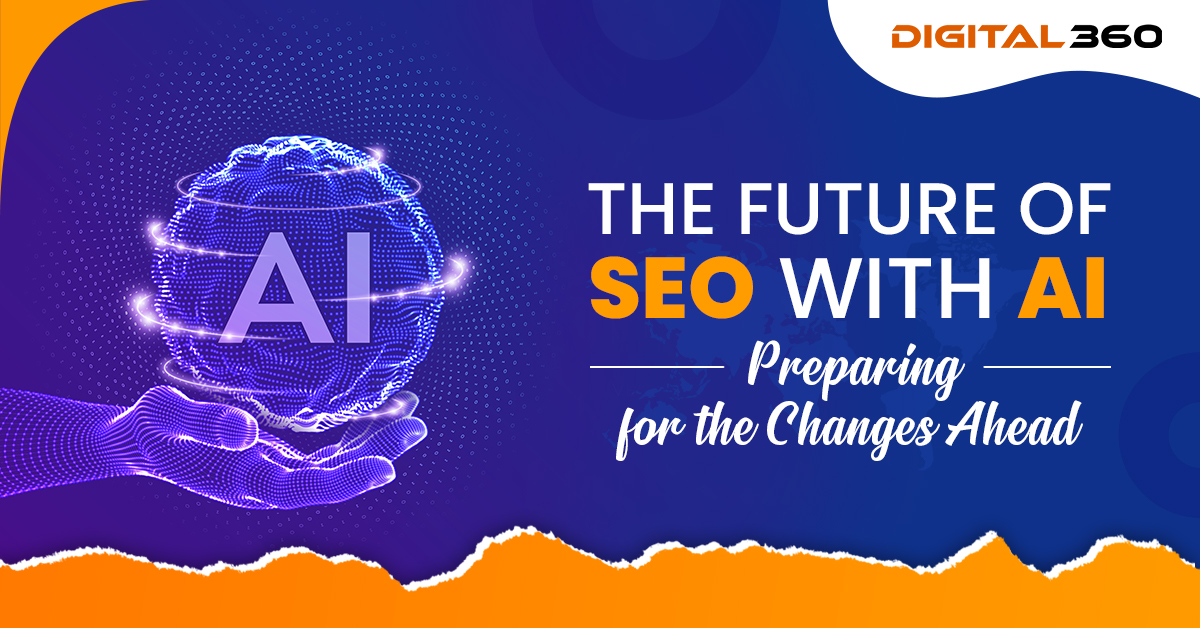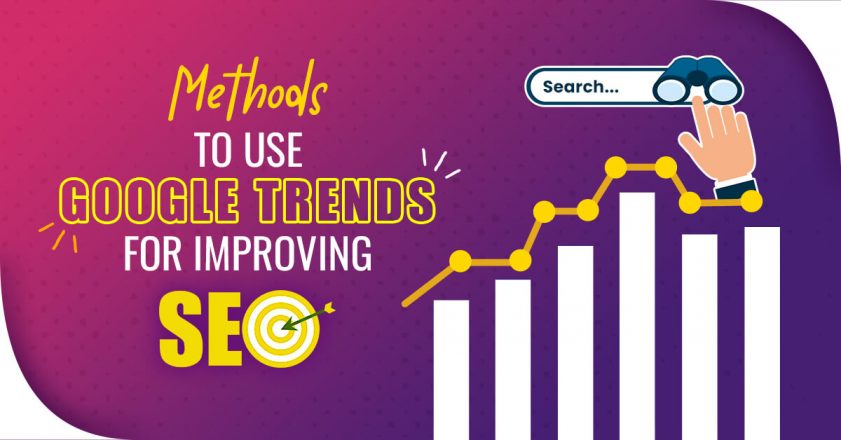The ever-changing SEO landscape is set to undergo a seismic shift shortly as artificial intelligence (AI) becomes increasingly entwined with search engine optimization or SEO. This convergence will introduce dramatic changes to how a search engine functions and how businesses can optimise their online presence, allowing them to reach new heights of success in an increasingly competitive industry. Companies and digital marketers alike must be prepared for the transition by understanding what this major change could mean for their particular goals, effective strategies, and workflows.
AI is set to revolutionise many aspects of SEO, including keyword research and high-quality content development. AI can gather real-time data from search engines faster than manual processes ever could, facilitating long-term planning while providing immediate insights into user behavior on various platforms.
AI also enables marketers to analyse vast amounts of data more quickly and accurately—potentially improving the rankings of current campaigns while revealing less obvious opportunities going forward. Ultimately, this combination could result in more cost-effective tactics that yield bigger returns on investment for companies who have adapted to accommodate modern trends in SEO optimisation.
The Future of SEO with AI
The potential of Artificial Intelligence (AI) for Search engine optimization (SEO) is only beginning to be tapped. By integrating AI into SEO strategies, businesses have the power to vastly improve their online visibility and ranking factors on search engine results pages. The recent SEO trends state that social media platforms are becoming equally popular as alternative search engines.
Companies will be able to anticipate and identify patterns in consumer behavior quickly and accurately, allowing them to target potential customers more effectively. AI can also leverage collected data to inform SEO tactics that will help businesses stay ahead of the competition.
In addition, AI can help automate many of the manual processes associated with SEO optimisation. Predictive analytics could greatly reduce the time and effort needed for learning algorithm updates, keyword research, content creation, link building and so on; helping enhance SEO performance and efficiency over time.
All these factors together make it clear that AI has a huge role to play in predicting the future of SEO. With consistent investment in AI technology, website owners can make sure they are at the forefront of emerging trends in digital marketing – strengthening their brand’s presence while staying agile enough to rapidly adapt as needed.
Latest Trends of AI and SEO
AI is revolutionising how businesses and everyday people access information. It has rapidly evolved from its infancy, with AI now being integrated into multiple facets of life. One area where AI has made huge strides is SEO (Search engine optimization). Search engines are using AI-powered tools to provide the most relevant results to searchers. This has revolutionised the way search engine algorithms work, making them much more intelligent than they were before.
The integration of AI within SEO provides many advantages, including precision targeting of relevant keywords, better optimisation of content for different searches and highly efficient analysis of data. This helps optimise AI-generated content in order to boost visibility on search engines. As such, it’s no surprise that AI and SEO have gone hand-in-hand over the past few years. Furthermore, it has also opened up new possibilities in terms of analysis and information discovery, ensuring that webmasters stay ahead of the latest trends in web performance optimisation.
Other trends that have been observed include improved voice searching technologies, artificial intelligence bots for task automation and machine learning algorithms for improved decision-making based on user data. As technology advances further, we expect AI to continue playing a major role in SEO campaigns and helping to constantly power up our ability to provide the best possible user experience.
AI-Powered Search Algorithms
Overall, AI-powered search algorithms have been an incredible leap forward in accuracy when it comes to the field of search. From Google’s RankBrain—which employs machine learning programs in order to continuously analyse user interactions with personalised search results and refine its search rankings accordingly—to other implementations of AI in virtually every major search engine, these advances in artificial intelligence allow users to quickly and accurately get the information they’re looking for without having to dive into databases of countless pages.
More specifically, these algorithms are capable of understanding the context behind a user’s query and matching it with the most relevant web pages based on their criteria. As search engine algorithms evolve alongside other sectors using AI, consumers can expect more intuitive, accurate searches than ever before.
Transforming Keyword Research and Content Optimisation
In the past, keyword research was a challenging and time-consuming part of SEO tasks. Marketers had to analyse individual keywords and phrases, estimate their relevance and potential impact, and consider user intent to come up with valuable insights. Content optimisation was likewise difficult, often requiring that marketing teams find a balance between SEO performance and user engagement.
AI technology is now revolutionising keyword research and content optimisation in SEO. AI powerful tools make it easier to identify “long tail” or more specific keywords that are less competitive in the SERPs but still highly relevant to user queries.
Optimising content quality has also become simpler as AI-driven tools spot trends in topic popularity, enabling marketers to identify topics likely to benefit SEO efforts while engaging readers with high-quality relevant content. These improvements not only save marketers time but help them ensure accuracy in keyword selection by utilising AI deep learning techniques for better analysis.
Increasing Popularity of Voice Search Optimisation
Voice search technology has revolutionised the way people discover and consume information. Since their launching, virtual assistants like Amazon’s Alexa, Apple’s Siri, Microsoft’s Cortana, and Google Assistant have seen tremendous success and have become an integral part of our lives.
Voice search queries have exploded in popularity even among older demographics who prefer the hands-free, conversational nature of voice search. Consequently, user behaviour has dramatically shifted as it is estimated that half of the US population will use voice searching capabilities daily – many of them favouring voice query over typing their searches particularly when looking for local information.
To capture this audience as well as provide better results for them, leading search engines had to start prioritising visual content which is optimised for voice search. This led to the development of AI technologies which are highly attuned to users’ needs making their interaction with these devices even easier and more productive both locally and globally.
They are now able to understand natural language questions and give accurate responses in real-time based on valuable analytics on not just what was said but also other related contextual information such as nearby locations or previous web searches.
Trending Visual Search
Visual search is quickly becoming one of the most important elements of SEO. With the advancement of AI and machine perception technology, search algorithms can identify images and other types of multimedia which greatly enhances the consumer search experience.
Google Lens in particular has experienced tremendous growth due to its intuitive abilities to identify real-world objects or translate text in an image in real time. Rather than relying on traditional keyword-based search results, people can use their camera or upload images via the Google Lens app to assist them with their relevant searches. This has made it easier for consumers to find what they are looking for and also enables businesses to better market their products.
In addition, this growing search trend is only going to become more popular as companies continue to integrate AI into their services and devices like IoT get smarter. Visual searches are now necessary for businesses who want to stay competitive – they must optimise their websites and product images so they appear when customers use visual searches such as Google Lens or other photo-recognition technologies.
Improving a site’s visual search capabilities requires adjustments not only from a technological level but also from a content production level – something that many are still identifying how best to navigate and move forward with.
Emergence of Bots
The emergence of natural language processing bots has been hugely disruptive to the tech industry. As the world’s fastest-growing consumer application, ChatGPT surprised many with its success, gaining 100 million monthly active users in just two months after launch. This unexpected growth highlights how far NLP technology is maturing and how effective it can be at delivering intuitive user experiences.
Chatbots are poised to shape the digital landscape in numerous ways over time, challenging us to rethink our search engine optimization strategies for content marketing and other areas of online promotion. Already we’ve seen resistance to traditional SEO tactics as people move toward more intuitive conversation-based interaction with digital assistants like ChatGPT.
These advancements provide opportunities for companies to become more efficient by automating customer service operations and conversational queries; but it also presents an interesting challenge—how best to adjust current SEO strategies for maximum efficiency with minimal disruption? With natural language processing bots becoming increasingly intelligent, effective communication between bots and customers becomes more essential than ever before.





